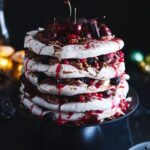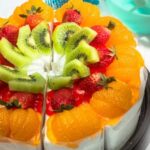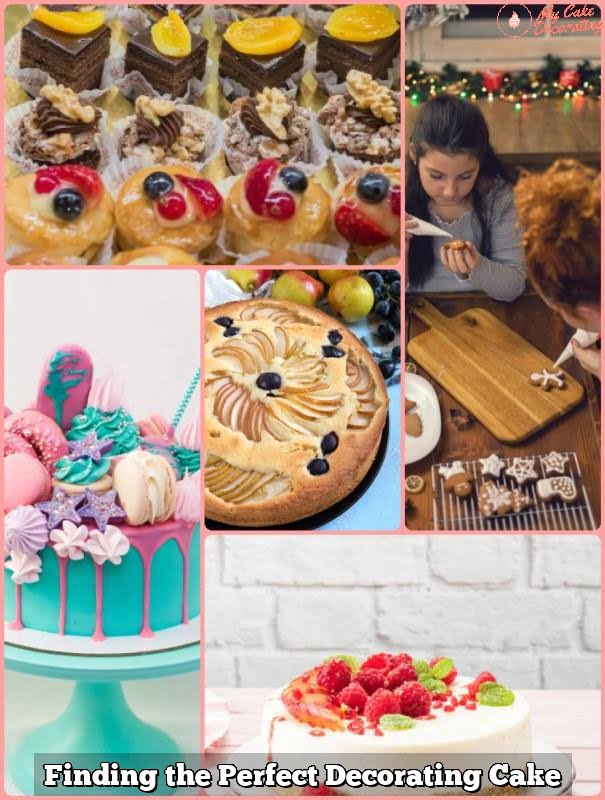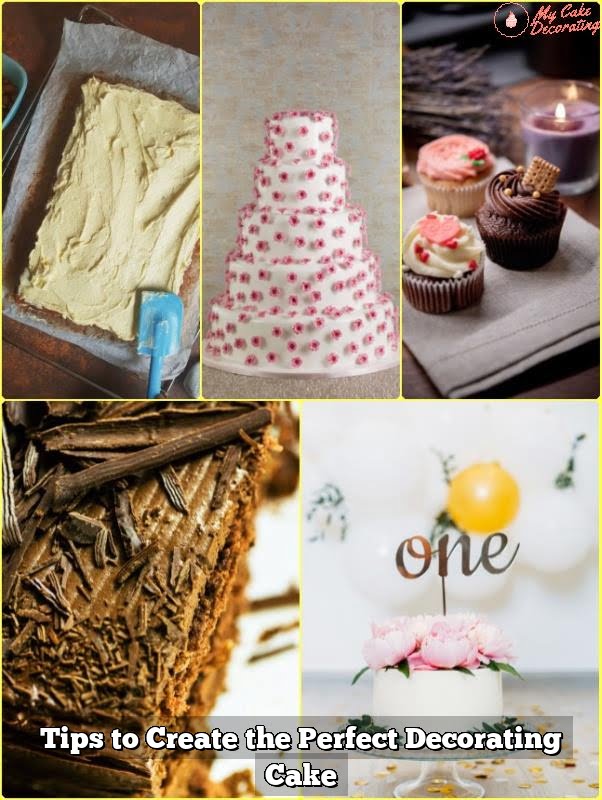Are you wondering how to bake the perfect cake for decorating? Whether you are a beginner or an experienced baker, creating a flawless canvas for your decorating skills is essential. The foundation of any beautifully decorated cake is a moist, sturdy, and delicious base. In this article, we will explore the importance of a perfect cake for decorating and provide you with valuable tips and techniques for achieving it.
When it comes to cake decorating, having the right base is crucial. A well-baked cake not only provides the structure needed for intricate designs but also enhances the overall taste and texture of the final product. In this section, we will discuss the significance of starting with a perfect cake and how it can elevate your decorating skills to new heights.
We will delve into the key factors that contribute to creating the ideal cake for decorating, including choosing the right ingredients, following a foolproof recipe, mastering baking techniques, and ensuring that your cake is ready for frosting and decoration. By understanding these fundamental aspects, you can set yourself up for success in creating stunning works of edible art. So, let’s get started on our journey to mastering the art of baking the perfect cake for decorating.
Choosing the Right Ingredients
When it comes to baking the perfect cake for decorating, choosing the right ingredients is key. From the flour to the sugar, each ingredient plays a crucial role in the texture and flavor of your cake. Here are some essential tips to consider when selecting the ingredients for your cake.
Quality Matters
Using high-quality, fresh ingredients is essential for achieving a delicious and sturdy cake. Opt for unbleached, all-purpose flour and pure vanilla extract for the best results. Additionally, using farm-fresh eggs and high-quality butter can make a significant difference in the taste and texture of your cake.
Choosing the Right Flour
The type of flour you use can greatly impact the outcome of your cake. While all-purpose flour is versatile and commonly used for most cakes, consider using cake flour for a lighter, softer texture. Cake flour has a lower protein content, resulting in a more delicate crumb that is ideal for decorating.
Avoid Overmixing
Overmixing your batter can result in a tough and dense cake. When combining dry and wet ingredients, mix until just combined to prevent overworking the gluten in the flour. This will help ensure a tender and moist cake that is perfect for decorating.
By being mindful of the quality of your ingredients, choosing the right type of flour, and avoiding overmixing, you can set yourself up for success when baking the perfect cake for decorating. These simple yet essential steps will help you create a sturdy and delicious base that serves as a blank canvas ready for your decorative touch.
The Perfect Recipe
Baking the perfect cake for decorating requires a reliable and delicious recipe. The ideal cake for decorating is one that is moist, firm, and able to hold its shape well under the weight of frosting and decorations. Here is a step-by-step guide on how to bake the perfect cake for decorating:
First, start with the right ingredients. Choose high-quality flour, sugar, eggs, butter, and leavening agents. It’s important to use proper measurements and follow the recipe closely to ensure consistent results every time you bake.
The next step is to prepare the batter carefully. Be sure to mix the ingredients thoroughly without overmixing, which can result in a tough cake. Pour the batter into prepared cake pans evenly to ensure even baking. It’s important to choose the right size and shape of cake pan according to your desired end result.
Once the cakes are in the oven, it’s crucial to monitor them closely. Follow baking times carefully and avoid opening the oven door too often, as this can cause temperature fluctuations that may lead to uneven baking or even sinking in the middle of the cake.
Following these step-by-step instructions will help you achieve a delicious and sturdy cake that is perfect for decorating. By paying attention to ingredient quality, careful preparation of batter, and precise baking techniques, you can create a foundation for beautiful and creative cake decorations.
Baking Techniques
When it comes to baking the perfect cake for decorating, mastering the right baking techniques is crucial. Here are some tips to ensure that your cake turns out even and moist, providing the ideal canvas for all your beautiful decorations.
One of the most important steps in baking a cake is to properly prepare the pans. Be sure to grease and flour them thoroughly, or line them with parchment paper to prevent sticking. Additionally, if you’re making a layered cake, make sure to evenly divide the batter between the pans to ensure that each layer bakes consistently.
Another key technique for achieving an even and moist cake is to properly measure your ingredients. Using a kitchen scale can be incredibly helpful in ensuring precision, especially when it comes to measuring flour. Too much or too little flour can greatly affect the texture of your cake.
Furthermore, paying attention to your oven temperature and bake time is essential. Invest in an oven thermometer to ensure that your oven is at the correct temperature, as variations can lead to uneven baking. Additionally, resist the urge to open the oven door too often while baking, as this can cause fluctuations in temperature and potentially lead to a sunken cake.
Finally, once your cakes are out of the oven, allow them to cool completely before removing them from their pans. This will help prevent breakage and ensure that they are at the perfect temperature for frosting and decorating.
| Baking Technique | Tip |
|---|---|
| Properly preparing pans | Grease and flour them thoroughly or use parchment paper |
| Measuring ingredients | Use a kitchen scale for precision |
| Oven temperature and bake time | Invest in an oven thermometer and avoid opening the door too often during baking |
| Cooling cakes | Allow cakes to cool completely before removing them from their pans |
Cooling and Frosting
Once you’ve baked the perfect cake for decorating, it’s important to ensure that it cools properly before adding any frosting or decorations. The temperature of the cake plays a crucial role in the success of your decorating process, as frosting and decorations won’t adhere well to a warm cake and may melt or slide off. Here are some key steps to follow to ensure that your cake is at the perfect temperature for decorating.
Cooling the Cake
After removing the cake from the oven, allow it to cool in the pan for about 10-15 minutes. This will give it some time to set and firm up before you remove it from the pan. Once this initial cooling period is over, carefully transfer the cake onto a wire rack to cool completely. This will allow air to circulate around the entire cake, preventing any moisture buildup and ensuring an even cooling process.
Frosting Tips
When it comes to frosting your cake, make sure that it has cooled completely before you begin. Warm cakes can cause frosting to melt and slide off, leading to a messy and uneven finish. If time allows, consider refrigerating your cake for 30 minutes before frosting it. This will help firm up the surface of the cake and make it easier to apply a smooth layer of frosting.
Room Temperature Buttercream
If you’re using buttercream frosting for your cake, be sure that the butter is at room temperature when making the frosting. Room temperature butter will blend more smoothly with other ingredients, resulting in a creamy and smooth consistency that’s ideal for decorating. If your butter is too cold or too warm, your frosting may end up too stiff or too runny, making it difficult to achieve clean and precise decorations on your cake.
By following these steps for cooling and frosting a cake properly, you’ll be setting yourself up for success when it comes time to decorate your masterpiece.
Decorative Options
When it comes to decorating a cake, the options are endless. Whether you’re a beginner or an experienced baker, there are numerous techniques and styles to choose from when it comes to transforming your cake into a work of art. Here are some ideas for different cake decorating styles and techniques that will help you take your cakes to the next level:
1. Buttercream Piping: Using buttercream frosting in a piping bag with different tips to create beautiful designs, such as flowers, swirls, and intricate patterns.
2. Fondant Sculpting: Working with fondant allows you to sculpt three-dimensional decorations such as flowers, figures, and shapes that can be added to the top or sides of the cake.
3. Royal Icing Detailing: Royal icing is perfect for creating fine details, such as lace patterns, intricate designs, and delicate borders on your cake.
4. Creative Stenciling: Stencils can be used with powdered sugar or edible paint to create stunning designs on the surface of the cake.
5. Chocolate Artistry: Using melted chocolate to create decorative elements like curls, shards, and drizzles that add both flavor and visual appeal to your cake.
By exploring these different options for decorating your cake, you can find the style and technique that best suits your skill level and personal taste. With a little practice and patience, you’ll be able to create a visually stunning masterpiece that tastes as good as it looks.
Remember that practice makes perfect when it comes to cake decorating. Don’t be afraid to experiment with different techniques and styles until you find what works best for you. And most importantly, have fun expressing your creativity through the art of cake decoration.
Troubleshooting
When baking the perfect cake for decorating, it’s important to understand the common issues that may arise and how to avoid them. A beautifully decorated cake starts with a well-baked and structured base, so paying attention to potential problems is crucial for success. Below are some common issues and tips on how to avoid them when baking a cake for decorating:
- Overmixing the batter: Overmixing can lead to a dense and tough cake. To avoid this, carefully follow the recipe instructions and mix until just combined.
- Uneven baking: Uneven baking can result in a cake that is too dry in some areas and undercooked in others. Ensure even baking by rotating the cake pans halfway through the baking time and using an oven thermometer to check for accurate temperature.
- Sinking or domed top: A sunken or domed top can make decorating difficult. To prevent this, ensure your leavening agents are fresh, use room temperature ingredients, and bake at the correct temperature.
By being aware of these potential issues and implementing the suggested tips, you can set yourself up for success when baking a cake for decorating.
Additionally, it’s important to consider the environment in which you are working. Factors such as altitude, humidity, and oven calibration can all play a role in the success of your baked goods. Be mindful of your surroundings and make adjustments as necessary.
Remember that practice makes perfect when it comes to baking the ideal cake for decorating. Don’t be discouraged by initial setbacks – use each experience as a learning opportunity to improve your skills and achieve the ultimate masterpiece. With patience and attention to detail, you’ll be on your way to creating stunning cakes that not only look beautiful but taste delicious too.
Conclusion
In conclusion, baking the perfect cake for decorating is a combination of choosing the right ingredients, following a reliable recipe, using proper baking techniques, and ensuring the cake is cool and ready for frosting. By paying attention to these key steps, you can ensure that your cake not only tastes delicious but also provides a sturdy canvas for decorating.
From classic vanilla and chocolate cakes to more elaborate flavors like red velvet or lemon, the possibilities are endless when it comes to creating a delectable base for your decorative masterpiece.
One of the most important aspects of achieving the perfect cake for decorating is making sure it is perfectly cooled before applying frosting or decorations. Allowing the cake to cool completely will prevent the frosting from melting or running, ensuring a smooth and professional finish. Additionally, properly frosting the cake with an even layer will provide an ideal surface for adding creative decorative touches such as piping, fondant accents, or edible flowers.
There is no greater joy than seeing your friends and family’s faces light up as they admire your beautifully decorated and delicious cake creation. Whether you are creating a birthday cake, wedding cake, or simply an impressive dessert for a special occasion, following these tips will help you achieve a stunning result every time when baking the perfect cake for decorating.
Remember that practice makes perfect – so don’t be afraid to experiment with different flavors, fillings, and decorative techniques to express your creativity in creating beautiful and delectable masterpieces.
Frequently Asked Questions
How Far in Advance Should You Bake a Cake Before Decorating?
The ideal timeframe for baking a cake before decorating varies depending on the type of cake. Generally, it’s best to bake the cake layers one day in advance to allow them to fully cool and set before frosting and decorating.
What Are the 7 Rules for Baking Perfect Cake?
The 7 rules for baking the perfect cake include using room temperature ingredients, accurately measuring dry and wet ingredients, sifting dry ingredients, not overmixing the batter, preparing the cake pans properly, following the recommended baking time and temperature, and allowing the cakes to cool completely before frosting.
How Do You Prepare a Cake for Decorating?
To prepare a cake for decorating, start by leveling off the tops of the cake layers if necessary. Then, apply a thin layer of frosting or simple syrup to lock in moisture.
Next, crumb coat the cake with a thin layer of frosting before applying the final coat. Finally, chill or freeze the cake briefly to set the frosting before decorating as desired.

Welcome to my blog about home and family. This blog is a place where I will share my thoughts, ideas, and experiences related to these important topics. I am a stay-at-home mom with two young children. I hope you enjoy reading it! and may find some helpful tips and ideas that will make your home and family life even better!





